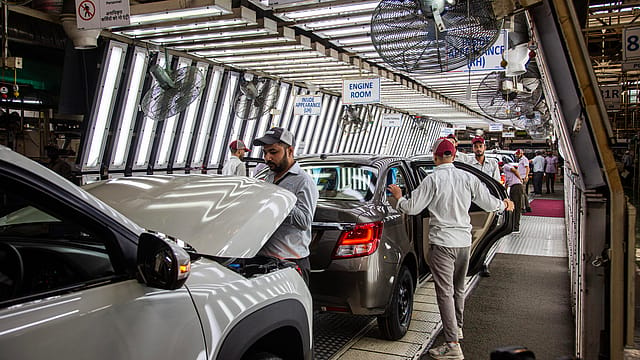Global light vehicle sales to grow under 2% in 2024: Moody's
ADVERTISEMENT

Light vehicle sales will be muted this year, following 10.8% growth in 2023, according to a report by Moody's Investors Service.
Global car sales reached 89.8 million units last year, almost matching pre-pandemic numbers. Moody's, however, believes hitting the past peak of 95 million vehicles will take until at least 2026.
"For the next 12-18 months, we expect a continuation of the recovery of global light vehicle sales, albeit at a slower pace — 1.6% this year and 2.1% in 2025," Moody's says in its auto manufacturing report.
Moody's expects the transition to electric vehicles to continue even though EV sales have recently lost some momentum.
Global battery electric vehicle sales rose by a third to 11 million last year, raising EV penetration to 12.5% from 10% in 2022. However, EV sales growth recently slowed down resulting in internal combustion engine (ICE) vehicles, including hybrids, fuelling the stronger-than-expected global sales growth in the second half of 2023.
January 2026
Netflix, which has been in India for a decade, has successfully struck a balance between high-class premium content and pricing that attracts a range of customers. Find out how the U.S. streaming giant evolved in India, plus an exclusive interview with CEO Ted Sarandos. Also read about the Best Investments for 2026, and how rising growth and easing inflation will come in handy for finance minister Nirmala Sitharaman as she prepares Budget 2026.
"We project BEV penetration to increase towards 15% in 2024, slightly below the 16% we previously expected. The penetration rate will be driven by improved product availability and attractive discounts," says Moody's.
Moody's maintained its forecast of EV penetration hitting a third of global sales by 2030 and nearly half by 2035. "We do not think the recent slowdown in BEV adoption will hurt global vehicle sales volumes, with consumers instead opting for ICE and hybrid versions," the rating agency says.
Battery electric vehicles (BEV) sales growth is stalling as government incentive schemes in some regions have ended and become more difficult to attain in others.
Limited availability of affordable EVs outside China and insufficient charging infrastructure are further drags to the EV adoption, Moody's points out.
Fortune India in February reported that low-cost models are crucial for EV adoption. Hybrid car sales have outpaced electric vehicles in India as buyers find EVs either too costly or charging infrastructure patchy.
Moody's says many electric carmakers cut prices or are providing their own sales incentives owing to weaker-than-expected demand, which is a drag on the companies' profit margins in this segment.
"For the next 12-18 months, we expect margins to come down towards 8%, which is still a healthy level. We expect margins will be slightly diluted by: labor cost inflation; the rising share of less profitable BEVs (notwithstanding the declining momentum of BEV penetration); negative mix effects, as consumers return to more affordable models; and price pressure in BEV and ICE segments tied to improving supply and tougher competition among automakers," says Moody's.
